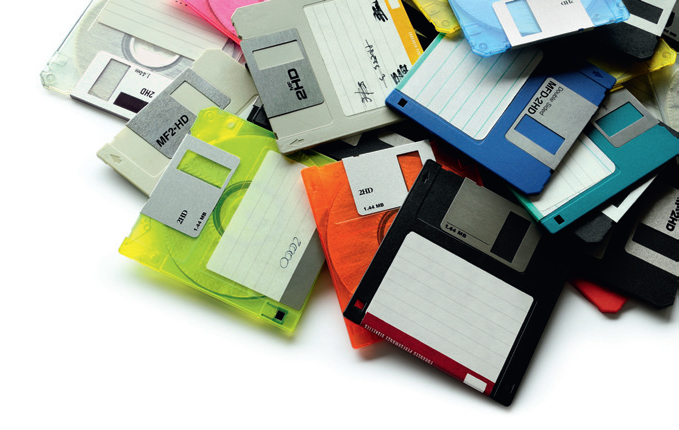A while back, I stumbled upon some cassette tapes of interviews I’d conducted for my diploma thesis. It occurred to me that it’s been a long time since I’ve actually owned equipment that could play them back—and that the transcripts are stored on a floppy disc (anyone still remember those?) in a format where it’s questionable whether the files can even still be read anymore. Not that anyone’s been interested in my tapes—but I probably share my fate with other researchers who’ve at some point saved their research data on floppies, CDs, DVDs, USB sticks, laptops, etc. in the hope that these would always be readable. “Always”, however, is a tricky thing: for how long do we actually want to preserve research data? Forever? And is it really everything that needs to be saved? Besides which, and most importantly: How do we ensure that data can be reproduced and perhaps shared with other researchers for a long time to come?

These and other questions are getting asked not only by researchers, but also by universities, research sponsors, governments, and companies, particularly in view of the increasing digitisation of research as such. And there are now even entire research fields devoted to the analysis of digital research data—the so-called digital humanities.
At the mdw, as elsewhere, research data has long been an issue. The data that’s relevant here takes on various forms—like text, images, and audio and video files (which is to say digitised versions of images, photos, programmes, posters, or various kinds of musical notation, among other things). In the mdw context, “research data” can pertain both to the process of artistic production (scans of sketches and designs, audio-visual or software-related documentation of the steps of artistic production, documentation of experimental hardware and software configurations, etc.) as well as to its results (notated music, audio and video recordings, interactive software).
It’s important above all for the researchers themselves to be able to reliably save, process, archive, and analyse this data and perhaps also share it with colleagues. But sponsors, too—such as the EU (as part of its research programme Horizon 2020) and the Austrian Science Fund (FWF)—are making greater and greater demands in this regard. Data that’s been collected and/or analysed as part Viennaof FWF-sponsored projects, for instance, is supposed to be made freely available to the public (open access)—though of course, copyright laws as well as other related protections and/or legitimate interests (such as of an economic nature) also need to be respected. There are numerous informational and professional development events being held on this topic, such as those organised by the mdw’s Centre of Further Education as well as the institution WTZ Ost (Knowledge Transfer Centre East: www.wtz-ost.at). A 20 March 2018 event of WTZ Ost, for example, is entitled Meine Forschung = meine Daten? [My Research = My Data?] and will deal with research data’s ownership and use.
In order to do justice to the constantly growing list of requirements, the mdw’s Information Technology Department (ZID) has set up an institutional data repository that conforms to international standards. To go along with it, a group headed by the university’s Research Funding Office has worked out some “rules of play”—specifically the mdw Repository’s terms of use, which were developed with support from an internal legal expert, and the “mdw Policy”, a set of guidelines on research data management developed by the mdw Rectorate and formally announced on 6 December 2017. Their overarching theme is the fundamental acknowledgement that the researchers themselves should be free to use the content of research data that they themselves have generated for research purposes. By the same token, researchers are also obligated to abide by applicable laws and the mdw’s internal “rules of play”. This combination is meant to result in a system that makes possible secure and reliable work with research data such that no data need ever suffer the fate of those old cassettes of mine.
Further information
- mdw’s research data management policy (pdf, German)
- mdw service research data management (German)
- Institutional repository of the mdw
- Open access policy for projects supported by the FWF (German)
- Horizon 2020: Guidelines on Data Management (pdf)
Event tip
“Meine Forschung = meine Daten?” (My Research = my data?)
20 March 2018, 6.00 – 8.30 pm
mdw – University of Music and Performing Arts Vienna
Reading room of the mdw library
Anton-von-Webern-Platz 1
1030 Vienna
Free admission!

